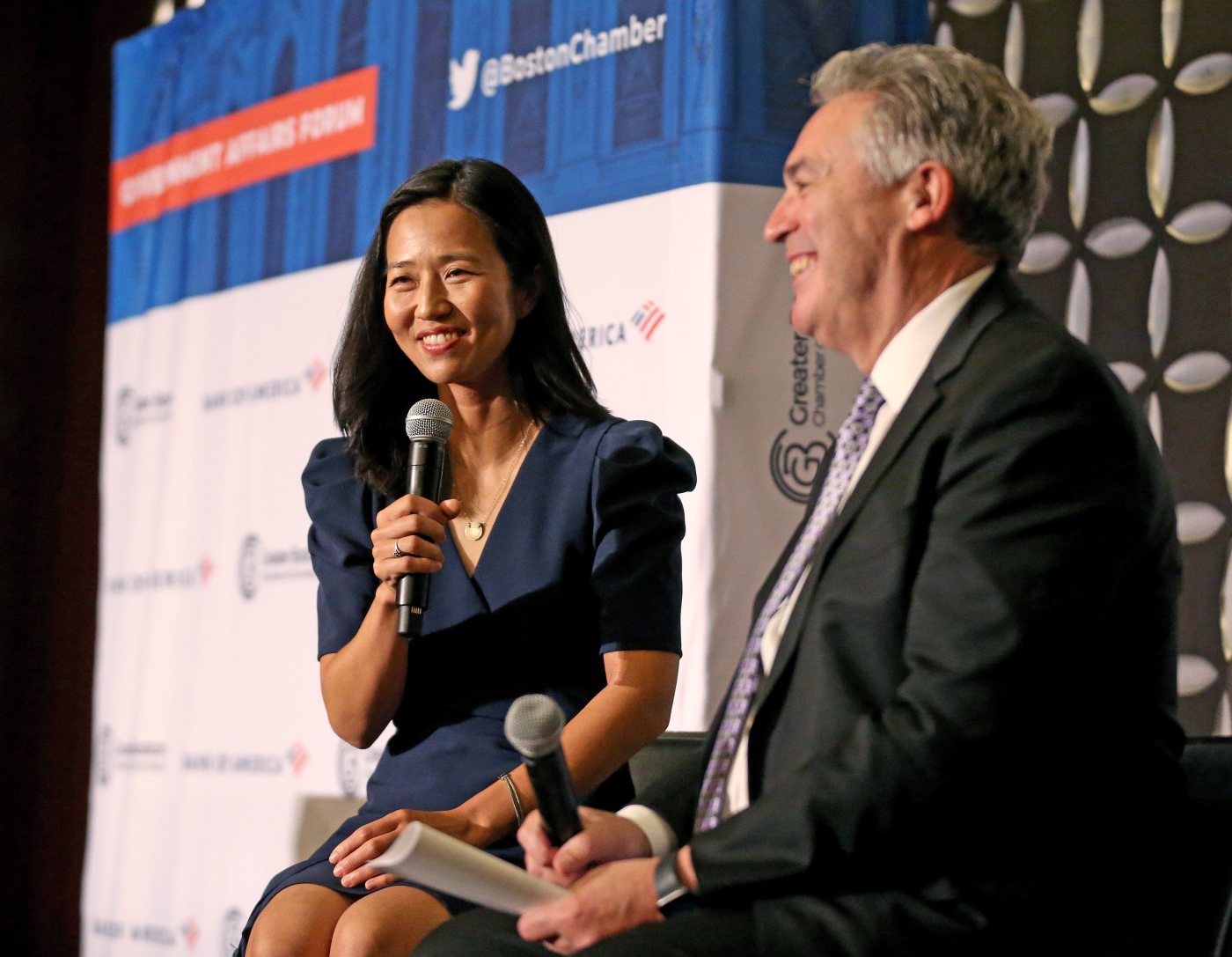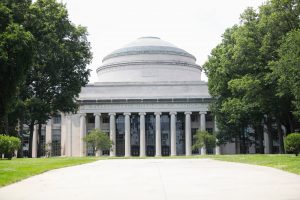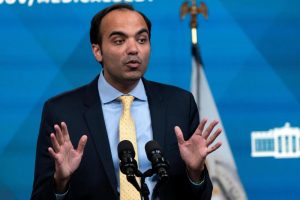
Boston Mayor Wu’s commercial tax rate plan will backfire on residents, business leaders say
Business leaders warned that the mayor’s plan to raise commercial tax rates will backfire by further depressing that struggling sector’s property values and leaving homeowners on the hook for much higher taxes down the road.
The gloomy financial outlook was hashed out during a Wednesday forum hosted by NAIOP Massachusetts, which honed in on a home rule petition proposed by Mayor Michelle Wu and featured remarks from some of the bill’s harshest critics.
Jim Rooney, president and CEO of the Greater Boston Chamber of Commerce, participated in the forum and said afterwards that it provided an important opportunity for the business community, particularly the commercial property tax owners, to get their message out while the issue is still before the City Council.
“I thought it was a balanced discussion in terms of presenting the context in which this proposal is being made,” Rooney told the Herald. “There is a crisis in the commercial property industry right now due to issues no elected official has real control over.”
Citing issues of interest rates, inflation, supply-chain problems and post-pandemic realities such as remote-work-driven office vacancies, Rooney said, “We have to adjust our approach to public policy to deal with those realities.”
During the forum, he spoke to how City Hall policies, such as what the mayor is trying to implement with her tax classification petition, are hindering development and making the city less business-friendly, both of which impact the tax base.
Much of the day’s discussion was centered around the findings of a new report issued by Ryan, a global tax consulting firm, and presented by panelist Daniel Swift, a principal there who specializes in commercial tax property.
Swift concluded that while the mayor’s petition seeks to shield residential homeowners from a large spike in property taxes brought on by declining commercial property values next year, the plan will actually backfire — ultimately leaving “the residential class with far higher taxes as a result of this policy.”
Related Articles
Two people enter Boston City Hall with gun, City Council meeting disrupted
Report: Boston Mayor Wu’s plan to increase commercial tax rates is bad for business
Boston mayor, police seek to curb summer spike in gun violence
Boston Mayor Wu’s Italy trip sparks latest battle in North End outdoor dining war
Bill Bratton calls criticism of ShotSpotter technology ‘foolish’
He said the proposal would cause a spike to the commercial tax rate that would result in $2.6 billion in commercial assessment loss due just to the rate increase alone, “exacerbating the issue it seeks to solve.”
It would also create a competitive disadvantage for Boston in retaining and attracting businesses, employers and tenants to the tens of millions of vacant square feet of commercial space currently on the market, Swift said.
Another panelist, Meg Mainzer-Cohen, president and executive director of the Back Bay Association, provided some additional context.
She said there’s a misconception that the commercial tax rate increase will be borne mostly by wealthy corporate owners, but the reality of trickle-down economics is that those costs will be passed down to tenants such as small businesses and restaurants.
Swift also discussed the impact it would have on hindering new development. The mayor’s policy, he said, would negatively impact new growth, “which the city desperately relies on to exceed the 2.5% levy” cap state law places on how much existing property tax revenue it can collect.
In recent years, new growth has allowed Boston to add roughly 3% to the tax levy, Swift said.
The city is not at risk of a decline in property tax revenue, which makes up more than 70% of annual budget revenue, a third of which comes from commercial property taxes, he said. “It’s the rate of new growth that’s at risk.”
Rooney noted that there’s unlikely to be a big commercial development to bail the city out of its eroding commercial tax base predicament in the next several years, citing the need for Boston to tighten its budgetary belt and limit spending.
The mayor has proposed a budget with an 8% increase for the next fiscal year, though some of that is due to the city’s absorption of some Boston Planning and Development staff and functions, a move that includes some of its funding.
Mayor Wu’s home rule petition would allow Boston to tax businesses beyond the state limit for the next four years — up from a 175% to 200% shift from the residential to commercial sector in the next fiscal year that begins July 1.
The plan mirrors what was implemented by Mayor Thomas Menino in 2004, but panelist Marty Walz, interim president of the Boston Municipal Research Bureau, said it’s important to keep the situation in perspective.
Homeowners were staring down a roughly 40% increase in property taxes without the shift, and saw a 13% increase with it, in 2004. Next year, without the shift, the average single-family tax bill would increase by roughly 16.5%, and would dip to just 13.8% with the new classification, if Wu’s plan were to pass the city and state, according to Walz.
The Boston City Council will hold a hearing on the plan May 30.


